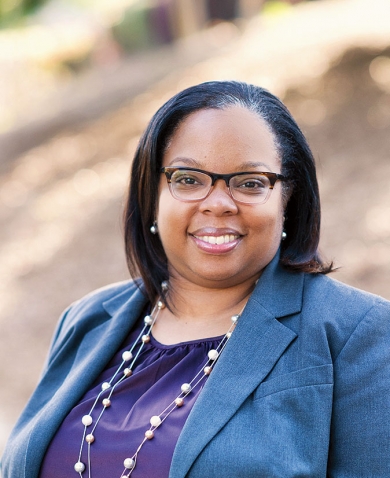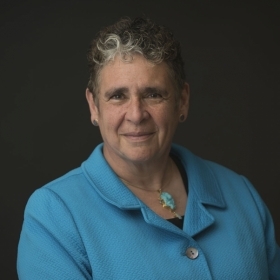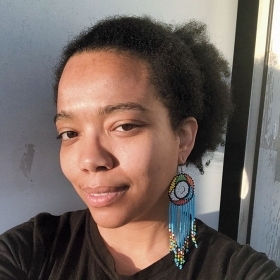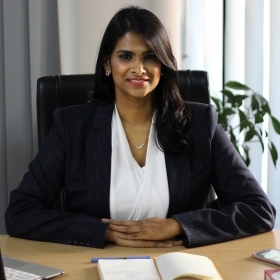Katrina Mitchell ’96 believes the work she does “is in my DNA.” As the child and grandchild of Jamaican immigrants, she says she has watched her family “give back” all her life. Early on, she learned to look beyond herself to meeting the needs of a larger extended community.
When Katrina graduated from Wellesley without a clear sense of what she wanted to do, she followed her gut to opportunities that allowed her to give back—and be around children. Her journey has taken her to the Children’s Defense Fund, the National Urban League, and to state juvenile-justice and child-welfare systems. She eventually landed at the United Way of Greater Atlanta (UWGA), in her current position as executive director of the Child Well-Being Movement.
Katrina’s work at United Way grapples with a central question: How do you get the public and private sectors to collaborate more effectively for children and put them at the center? “While it sounds like it makes sense and is easy enough,” she says, “it’s often not what’s happening.” Philanthropic organizations and the public sector struggle to work together to direct resources to where they are most needed.
Nearly half a million children in Greater Atlanta live in communities where they do not have access to quality schools, housing, health care, and future employment opportunities. Katrina, and United Way, realized that they were spending money supporting nonprofits, but the funds weren’t always getting to the right places—that sometimes kids and communities of color in particular weren’t being supported.
Katrina’s work as head of the Child Well-Being Movement is about “trying to get leaders to see, if both sectors don’t approach this work differently, the economic impact it can have on communities is devastating and the generation of children who don’t get what they need will continue to grow.” Katrina says that sometimes in this work, children and families can become numbers rather than people. Her aim is to shift that mindset.
While there are many groups engaging in assisting children, not all services and resources leverage the most important drivers of change. What sets Katrina and her team apart is the Child Well-Being Index. Created by UWGA in collaboration with dozens of partners, the index uses 14 different measures to rate how children, their families, and their communities are faring. These measures include percentages of low-weight births in a community and of children who can read proficiently by third grade, high school graduation rates, numbers of adults and children without health insurance, unemployment rates, and other numbers. The index exposes the gaps in services and resources and helps prioritize what’s needed most in order to drive change. In Greater Atlanta, roughly 500,000 youth live in communities with low or very low child well-being indexes.
Using the Child Well-Being Index as a guide, Katrina and her team can identify communities where resources are needed most, and locate and match them with agencies to provide those services and talents. Nonprofits and community agencies that seek funding undergo a rigorous application process.
Much of Katrina’s day is consumed by one meeting after another as she works to engage leaders and organizations in joining this mission towards greater child well-being. This involves developing strategic partnerships to drive policy change, identifying opportunities for local investment, and building a network of community leaders who are willing to give their time, talent, and treasure.
Katrina works four days a week, which allows her to sit on the board of a local charter school in Atlanta that her 9-year-old twins—Devin and Anaya—attend.
“Because of the role that women play, I think we have an opportunity to change this world,” Katrina says. “I have a path, I have a mission, and every day I want to be making a difference and putting children first no matter what I do.”
Click to view an interactive map that shows the Child Well-Being score for each ZIP code in Greater Atlanta.








We ask that those who engage in Wellesley magazine's online community act with honesty, integrity, and respect. (Remember the honor code, alums?) We reserve the right to remove comments by impersonators or comments that are not civil and relevant to the subject at hand. By posting here, you are permitting Wellesley magazine to edit and republish your comment in all media. Please remember that all posts are public.